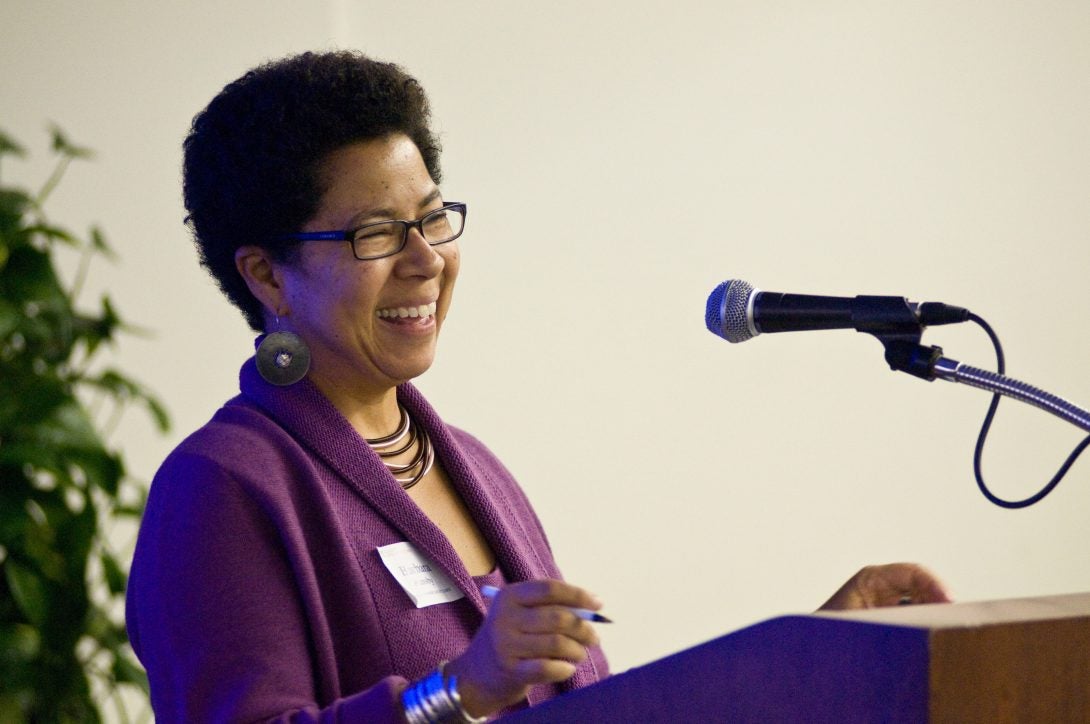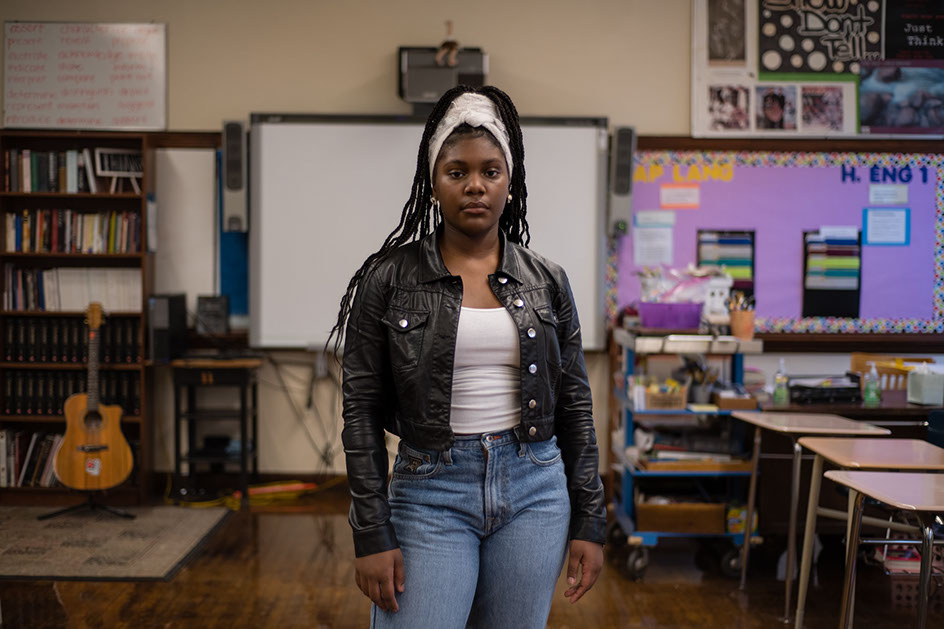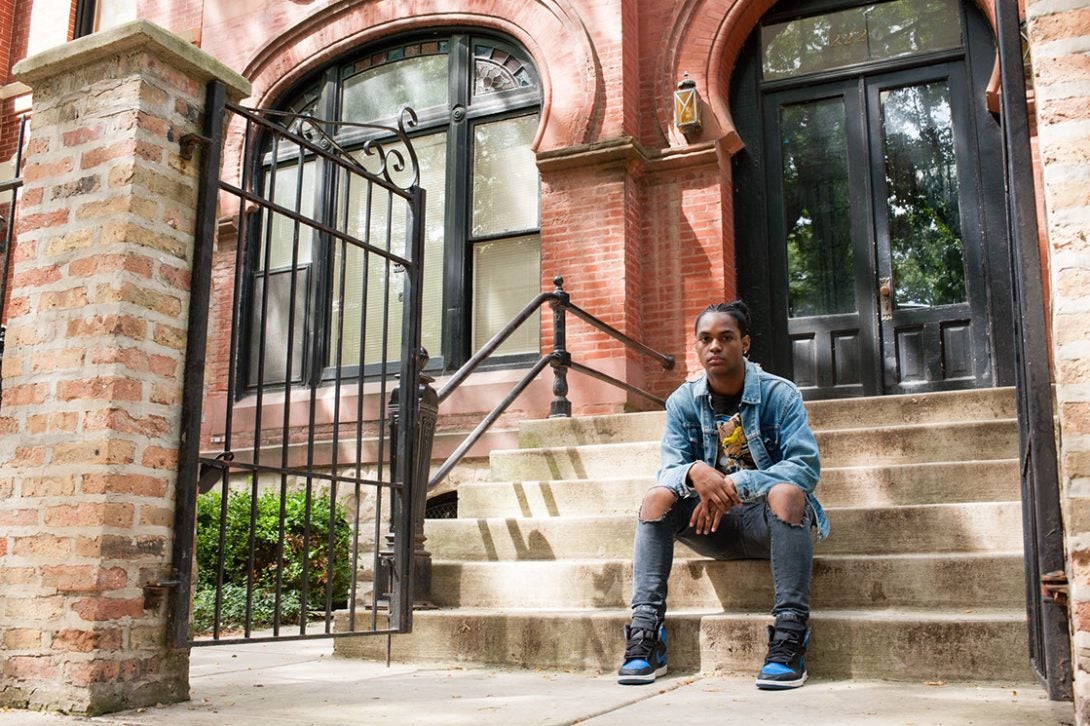Serving Social Justice
UIC’s Social Justice Initiative supports a community of faculty and students working to create positive change.
copy

When David was 14, he was falsely accused by his neighbor of breaking into her house. When Auyanah was 15, she spoke up when a classmate used a racial slur in class at a prestigious public high school and was labeled “aggressive” for objecting. Photographed and recorded by artist Tonika Johnson, David, Auyanah and other teens meet the viewer’s gaze directly as they tell their personal stories of exclusion in BELONGING Power, Place, and (Im)Possibilities, a virtual exhibition presented by UIC’s Chicago Justice Gallery this past fall and winter.
The gallery is part of UIC’s Social Justice Initiative (SJI), which formed in 2010 in the Office of the Provost to promote a greater good, serve the underserved and improve lives through scholarship, teaching and community engagement. Historian, writer and community activist Professor Barbara Ransby is the director of the initiative, which continues to grow under her leadership.
“I think three critical social justice challenges of our time are racial injustice and violence; wealth disparity, or unequal access to resources; and gender inequality and violence. The work of social justice scholars and practitioners is an ongoing process. In the final analysis, we hope to increase of the margin of justice, equity and compassion, even if we never arrive at finite solutions,” says Ransby, who was recently named a John D. MacArthur Endowed Chair.
In addition to the Chicago Justice Gallery, which supports artists and arts activism through exhibitions and public events, SJI is comprised of three other programs. The annual Justice Lens film series offers public screenings and discussions of films around a particular theme. Students can earn a Social Justice Minor through the College of Liberal Arts and Sciences Gender and Women’s Studies Program that explores injustices and local and global social movements to create positive change. And the Pipeline to Justice Scholarship and Mentoring Program supports community organizers and activists in completing undergraduate degrees at UIC.
Ransby quote
The work of social justice scholars and practitioners is an ongoing process. In the final analysis, we hope to increase of the margin of justice, equity and compassion, even if we never arrive at finite solutions.
part 2

Asha Edwards is a Pipeline to Justice Scholar who met Ransby at an Afrofuturist high school art exhibition when she was a student at Whitney Young Magnet High School in Chicago. At the time, Edwards was considering acceptance offers from several universities, but when Ransby offered her the scholarship and the financial peace of mind that came with it, she chose UIC. Studying at UIC also meant she could stay in Chicago and continue her work as a community organizer.
“I’ve always been about making art that shows how we can be free—making the liberation of oppressed people seem tangible and accessible,” says Edwards. She is majoring in sociology at UIC, but plans to switch that to a minor and major in Public Health, which will give her more direct contact with communities she hopes to work with. Outside of class, Edwards co-founded UIC Dissenters, an anti-war and anti-militarism organization calling for divestment from the military industrial complex and investment in life-sustaining resources. The group has been running a mutual aid project that assists unhoused people living near UIC’s campus. The project is rooted in self-determination and solidarity, not charity, and fighting for essential needs like shelter. They have been collecting firewood, propane tanks, bus cards, food, hand warmers, gloves, boots and tents to help their unhoused neighbors survive the harsh winter.
text

At UIC, Edwards is in good company. Across campus faculty and students are working to address injustice and discrimination from health disparities to alternatives to policing and incarceration. “We feel as a public university that this really is a part of our mission to try to help to solve some of the great questions of injustice and violence in our time. And if we weren’t convinced of that before the series of crises that our country and city are facing, then we certainly are well aware of that challenge now,” says Ransby.
Donors can support the Social Justice Initiative by giving to the scholarship fund or a general fund that sustains SJI’s ongoing work. Ransby says she appreciates all contributions, but particularly those from donors who want to have a stake in the future of the scholarship students and engage in a conversation with the initiative. “We also want to grow a community of people concerned about social justice, and donors are part of that,” she says.